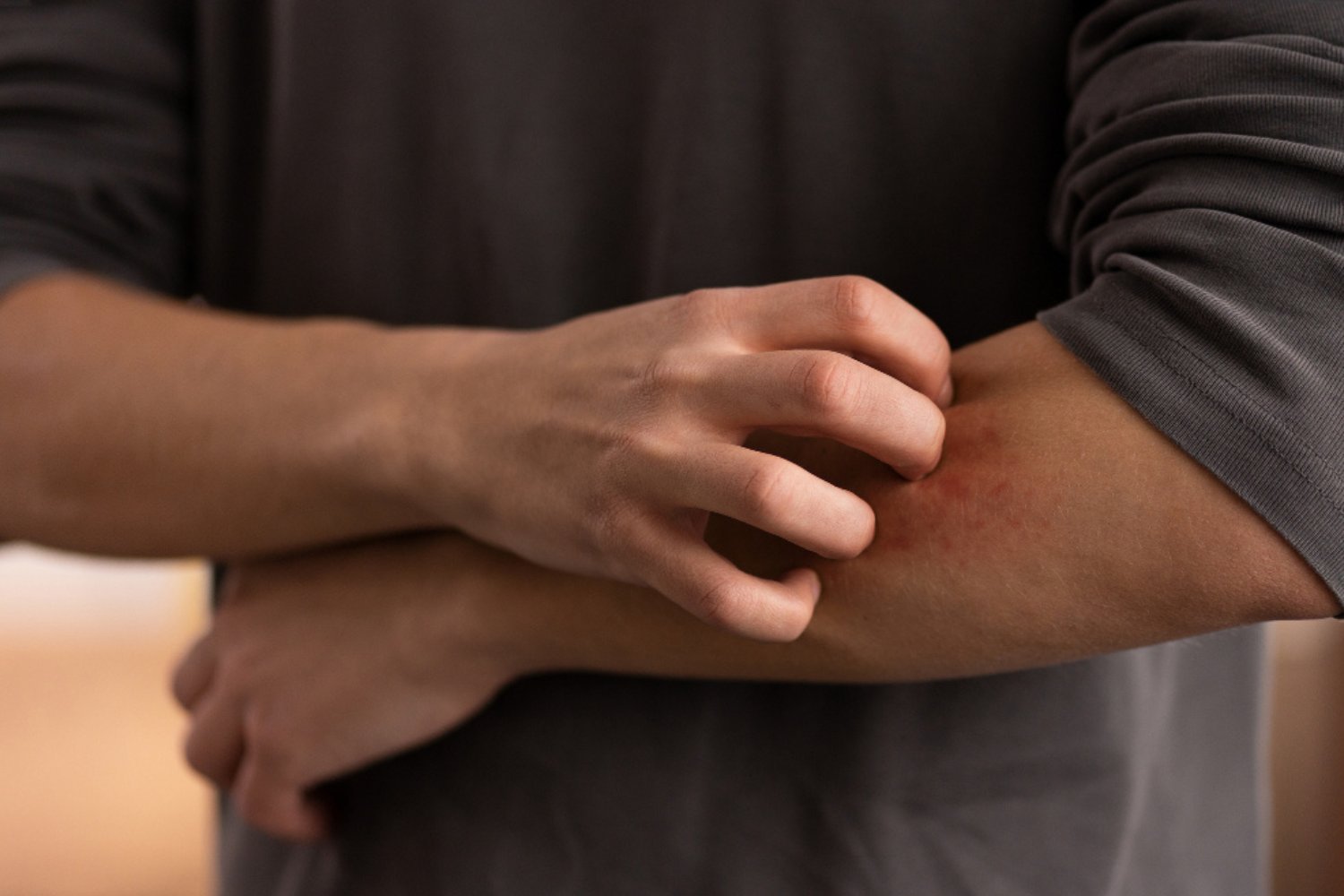Physical Address
304 North Cardinal St.
Dorchester Center, MA 02124
Physical Address
304 North Cardinal St.
Dorchester Center, MA 02124

Although “Happiness has a scratching for every itching,” itching often makes itchy skin worse. So why is a very strong instinct?
In a study with mice, researchers from the University of Pittsburg revealed why scratching aggravated inflammation and swelling-so why people and other animals may have evolved, though, to scratching, nourishing the so-called “itching cycle”. Consider resultsPublished today in sciencesItchy scratching seems to cause antibacterial inflammation – a sudden discovery with possible important effects to treat inflammatory skin diseases.
“Initially, these results seemed to offer a paradox: If the itching was bad for us, then why do you feel satisfied?” Daniel Kaplan of the University of Pittsburg, author of the study, said at a university statement. “The scratch is often fun, indicating that for development, this behavior must provide a kind of benefits. Our study helps in solving this paradox by providing evidence that scratching also provides defense against bacterial skin infections.”
Under the leadership of Andrew Leo of the University of Pittsburg, the researchers gave the symptoms of mice from allergic contact dermatitis, eczema caused by allergens or skin irritation with a rash in itching – and scratching that rash gets worse. They caused symptoms in natural mice, as well as mice without neurons that feel itching.
When the normal mice scratch their ears, the annexes and the neutrals (inflammatory immune cells) swell. However, some normal mice wore likes similar to the “shame” of the dog to prevent them from scratching, and their ears-along with those mice that do not contain neurons that consult itching-inflammation and swelling more moderate. This difference in the results confirms that, unfortunately, your parents were right: scratching worsened.
The researchers also showed that scratching demands the neurons sensitive to the launch of a chemical known as the substance P, which leads to mast cells: cells involved in the immune system, which causes inflammation and itching throughout the neutrophils.
“In contact dermatitis, mast cells are activated directly by allergens, which causes slight inflammation and itching,” explained Kaplan. “In response to scratching, the launch of the substance is stimulated by the cells via a second path, and therefore the reason for the scratch leads to more inflammation in the skin is that the bastard cells have been activated (combined) through two tracks.”
Breeding cells stand behind various unwanted skin diseases, but they are also involved in protecting us from pathogens. In fact, the researchers found that scratching also led to a decrease in Staphylococcus aureus (Primary bacteria responsible for skin infections) on the skin.
“The result that scratching improves defense against Staphylococci “It can be useful in some contexts,” says Kaplan. “But the damage caused by scratching to the skin may exceed this benefit when itching is chronic.”
By highlighting the role of bastard cells within the cycle of scratching on itching, the study can have a strong effect on future treatments for inflammatory skin. It also reminds us that there is nothing worse than itching that you can never scratch …